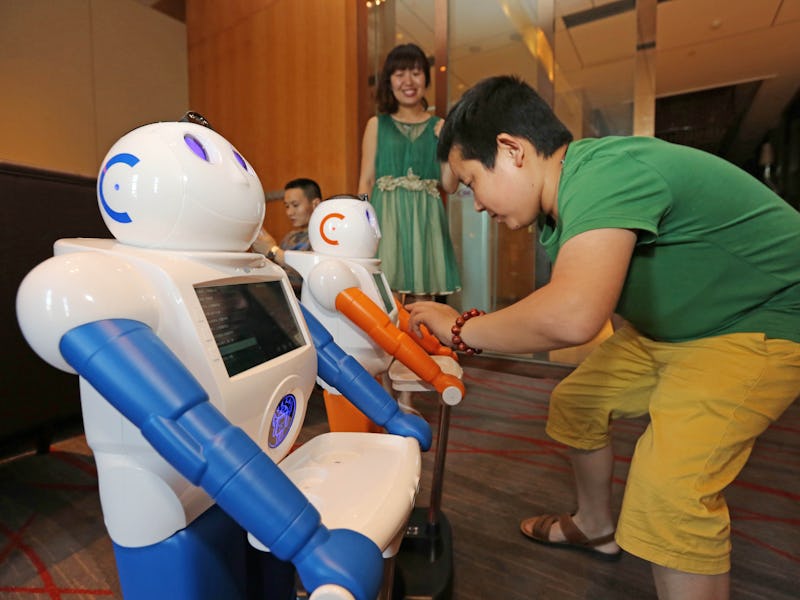Sarah Austin Compares A.I. Development to Anime, Asimov
The "heart-bot" enthusiast carved her way into the field one step at a time.

Our fascination with robot companionship has spanned the pages of novels, comics, legendary film scripts, and thesis reports for decades. Humanity seems to be racing toward coexisting with artificial beings, but for some, there’s a bit of worry when it comes to trusting artificial intelligence itself — not just cute companion bots, but the intelligence that has become increasingly vital to our everyday lives. But whether the argument is over robot welfare or the stability of an autopilot system, there will always be naysayers to warn society of the dangers that come with artificial intelligence.
Enter Sarah Austin, long-time tech journalist and producer turned internet famous speaker. Her years of dedication to marketing and mingling within the world of tech and science have led her to launch Broad Listening, which uses an emotional intelligence engine to help businesses hire within the world of Human Resources.
Along with her day job, Austin’s primary hobbies involve film and comics — in fact, many elements of her favorite shows inspired her career path. Austin said that one of her earliest inspirations was Dr. Naoko Akagi, from Neon Genesis Evangelion. “Naoko felt that the Magi represented the three aspects of her personality: herself as a scientist (Melchior), herself as a mother (Balthasar), and herself as a woman (Casper),” says Austin. “I found a strong role model in a scientist who empowers women, empowers herself and takes a feminine approach to designing artificial intelligence.”
Thanks to her background as a reality show star, Austin feels like there’s quite a bit to prove within her field. “Often I find myself presented with this space where I feel I have to show people how they can’t put me in a box. I have to fill the space with intelligent conversation and innovation. I have to present my ideas and rally people to my cause.”
As for A.I. development in the real world, Austin says that sci-fi culture carries a heavy influence on how engineers and programmers handle it. “Isaac Asimov’s three laws are regularly referenced by A.I. developers designing their products from robots on the factory floors, to self-driving cars, to flying aircrafts, to cleaning robots helping around the home, to security at shopping malls.”